No response from parties to dialog proposal, ‘Wait for our next move’, Iraq's Sadr warns
Prominent Iraqi Shia cleric Muqtada al-Sadr says he has submitted a proposal to the United Nations to hold a public debate with all political factions in Iraq, as the country’s political crisis continues to deepen.
In a post on his Twitter account on Saturday, Sadr wrote that he has not received a tangible response from the Iraqi political parties in this regard, adding that their response did not address the demands of the people or the revolutionaries.
"We submitted a proposal to the United Nations for open dialogue or rather a live public debate with all the political parties,” Sadr wrote, adding, “But we did not see a tangible response from them,” and they did not care about what is happening.
"Therefore, we ask everyone to wait for our next step regarding the policy of ignoring what has happened to Iraq and its people as a result of corruption and dependency,” he warned.
— مقتدى السيد محمد الصدر (@Mu_AlSadr) August 20, 2022
Sadr further noted that there would be no secret dialogue from today on, stressing, "I do not hide anything from my people, and I will not associate with the corrupt.”
He also claimed that he had given a lot of concessions for the sake of the nation and peace in Iraq, saying "we are waiting to see what they have for [implementation of] reforms to save Iraq."
The latest development comes as the outgoing Prime Minister Mustafa al-Kadhimi held a national dialogue to discuss the political deadlock in the country.
Sadr or his movement’s representatives did not attend the meeting.
A statement issued by Kadhimi's office said that the participants "expressed their commitment to finding a solution to all crises through dialogue to preserve the unity of Iraq, the security and stability of its people."
Iraq has been grappling with a political crisis in the absence of a functional government since October when it held its last legislative elections.
Sadr’s political bloc emerged as the biggest parliamentary faction in the election but fell short of an absolute majority needed to form a government, prompting the current political deadlock.
In June, all 73 legislators of the bloc quit their seats in a move seen as an attempt to pressure political rivals into expediting the formation of a government.
Sadr has demanded dissolution of parliament and early elections. Earlier this month, he called on his supporters to continue a sit-in inside the parliament until his demands, which include the dissolution of the parliament and holding early elections, are met.
Last week, Iraq’s Supreme Judicial Council (SJC) said it lacks sufficient authority to dissolve the country's parliament, urging all parties to refrain from getting the judiciary involved in political rivalries.
Sadr has warned of unspecific consequences if the judiciary did not heed his call to dissolve the parliament and pave the way for early elections.
The United Nations has already called on various political factions in Iraq to set aside differences and look for “urgent solutions” to the protracted political crisis.
VIDEO | Rome, Milan host new protests in solidarity with Palestinians
Dec. 21: ‘Axis of Resistance’ operations against Israeli occupation
Spain jurists demand ties with Israel ties be cut
VIDEO | Press TV's news headlines
VIDEO | Iran honors top Science Olympiad medalists
VIDEO | Austrians arrested at Gaza protest in Vienna
10 killed in bus crash in western Iran
VIDEO | One-man-band journalism with Civili


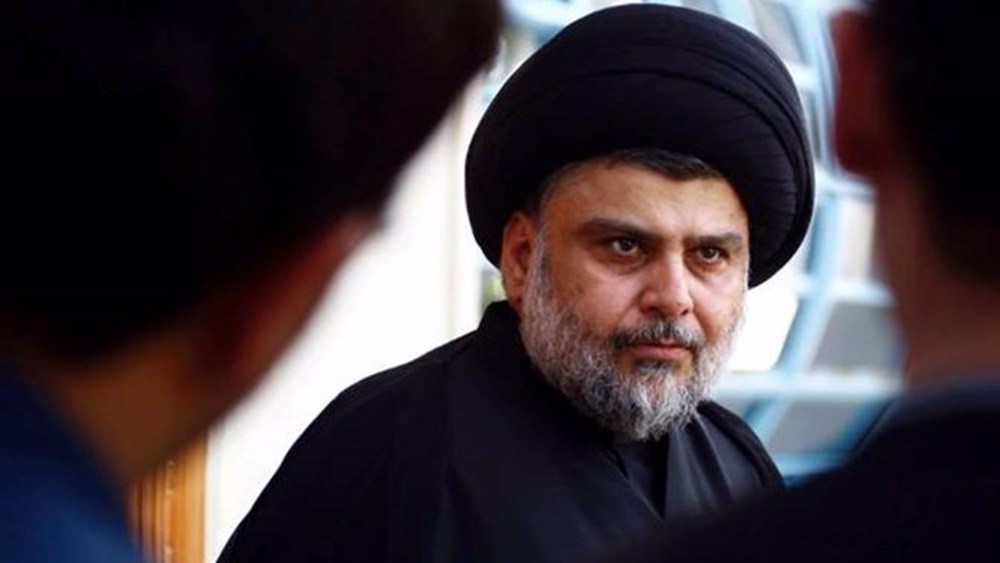
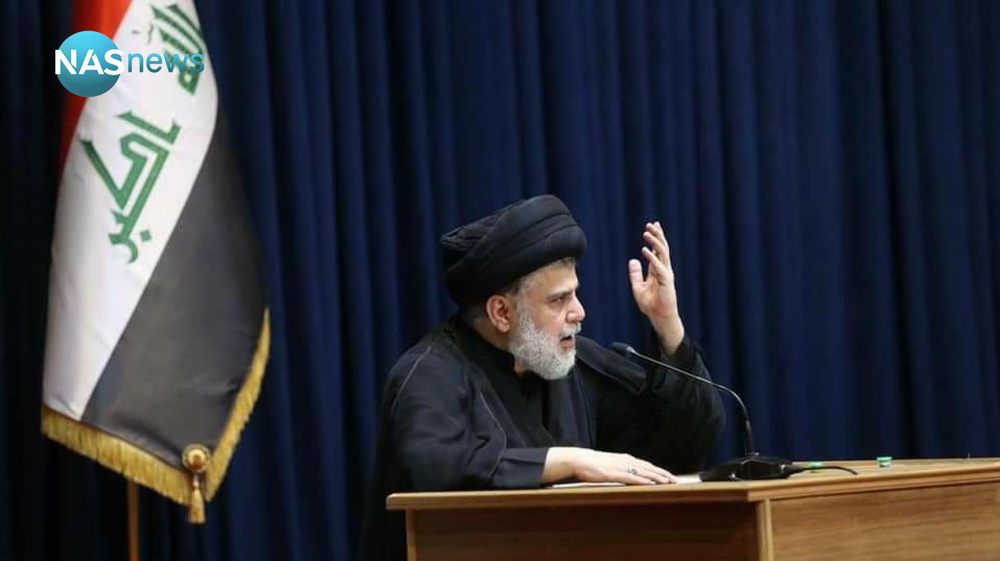






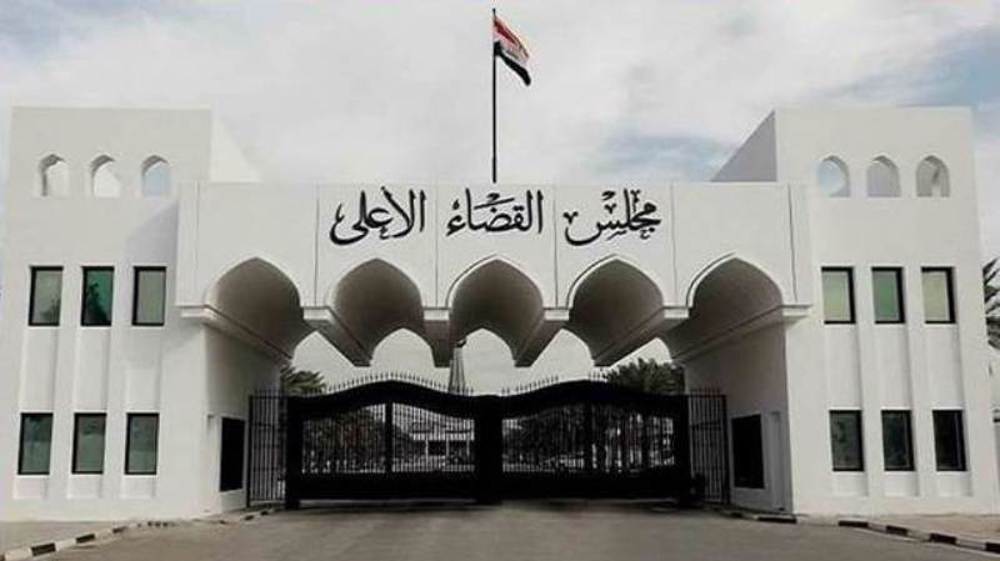
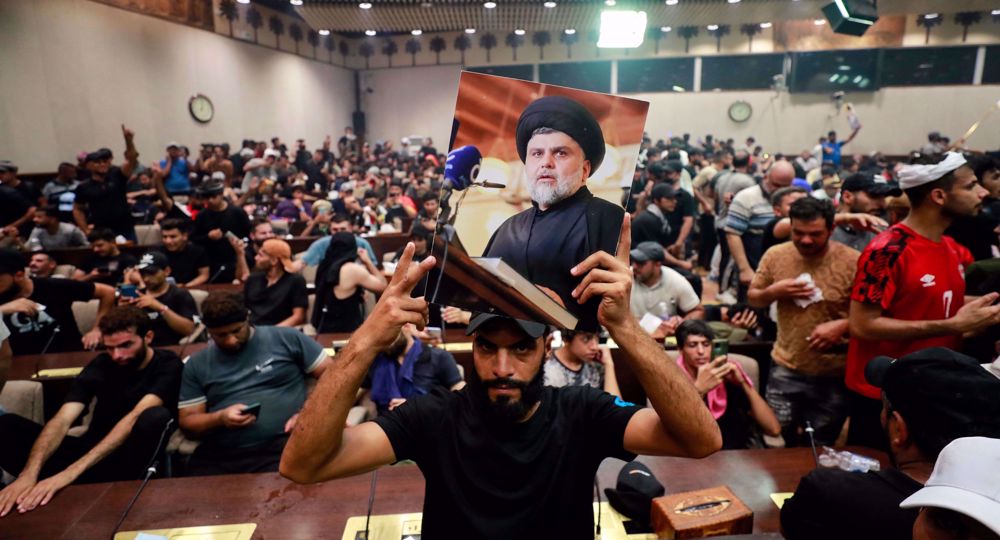
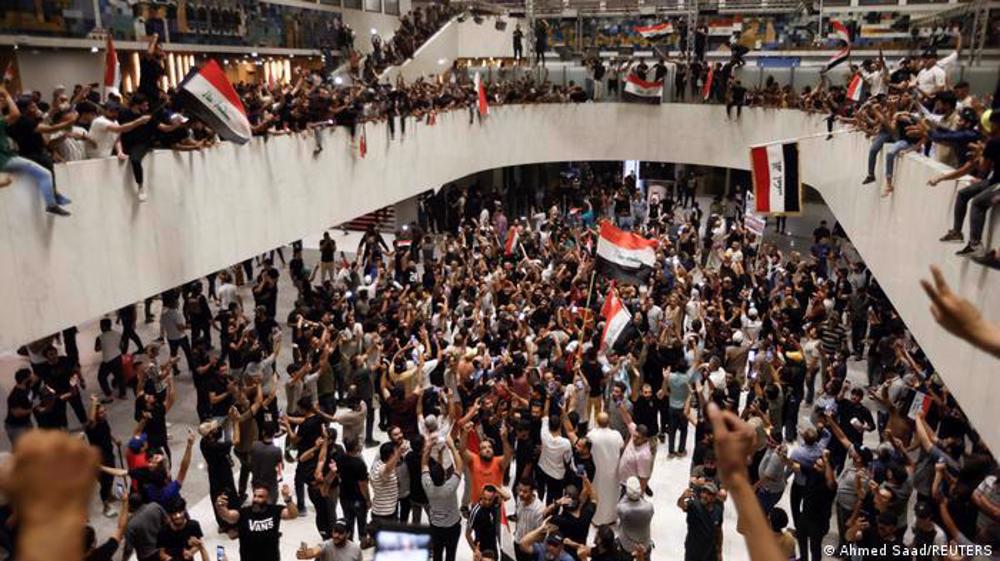

 This makes it easy to access the Press TV website
This makes it easy to access the Press TV website